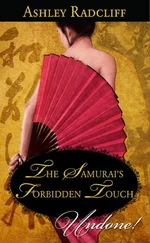Thomas Hoover - The samurai strategy
Здесь есть возможность читать онлайн «Thomas Hoover - The samurai strategy» весь текст электронной книги совершенно бесплатно (целиком полную версию без сокращений). В некоторых случаях можно слушать аудио, скачать через торрент в формате fb2 и присутствует краткое содержание. Жанр: Триллер, на английском языке. Описание произведения, (предисловие) а так же отзывы посетителей доступны на портале библиотеки ЛибКат.
- Название:The samurai strategy
- Автор:
- Жанр:
- Год:неизвестен
- ISBN:нет данных
- Рейтинг книги:5 / 5. Голосов: 1
-
Избранное:Добавить в избранное
- Отзывы:
-
Ваша оценка:
- 100
- 1
- 2
- 3
- 4
- 5
The samurai strategy: краткое содержание, описание и аннотация
Предлагаем к чтению аннотацию, описание, краткое содержание или предисловие (зависит от того, что написал сам автор книги «The samurai strategy»). Если вы не нашли необходимую информацию о книге — напишите в комментариях, мы постараемся отыскать её.
The samurai strategy — читать онлайн бесплатно полную книгу (весь текст) целиком
Ниже представлен текст книги, разбитый по страницам. Система сохранения места последней прочитанной страницы, позволяет с удобством читать онлайн бесплатно книгу «The samurai strategy», без необходимости каждый раз заново искать на чём Вы остановились. Поставьте закладку, и сможете в любой момент перейти на страницу, на которой закончили чтение.
Интервал:
Закладка:
Finally Ken appeared beside the doorway of the teahouse and signaled her forward. As she moved along the stepping stones, she noticed that the pathway had been swept clean of falling leaves, after which the gardener had strewn a few back to give it wabi, an unaffected natural look. The art of artlessness, she thought, as she paused at a stone water basin to rinse her mouth from its bamboo dipper, part of the preparatory ritual.
The cha-no-yu or "tea ceremony," she knew, required almost a lifetime to master completely. It was a seated ballet of nuance and perfect clarity of motion. One awkward gesture and its carefully orchestrated perfection could be spoiled. She hoped she could remember the rules well enough to get it right.
Ken was already seated across from her, tending a small charcoal brazier sunk into the tatami-matted floor. From its light she could just make out the room's rough-hewn timbers, the straw and mud walls, bark and bamboo ceiling. A small calligraphy scroll hung in the tokonoma alcove. As he beckoned her formally to sit, the room was caught in an unearthly silence, the only sound the sonorous boiling of the kettle.
Ken was profoundly transformed, almost like another being. Warm and attentive only minutes before, now he was part of a different world, solemn and remote. The black silk of his kimono seemed to enforce the seriousness in his dark eyes.
She watched as he ritually wiped a thin, delicately curved bamboo scoop with a folded cloth, first touching the handle, then the uptilted end, after which he balanced it atop the lacquer tea caddy. Next he lifted the tea bowl, an earth-tone glaze that shifted from mauve to brown as he rotated it in his hand and wiped the rim. Finally he swabbed the bottom and positioned the bowl on the tatami in front of him. Now the utensils had been formally cleansed. He was ready. From the tea caddy he spooned a mound of jade-green powdered tea and tapped it into the bowl. Then another, this last with a carefully prescribed twist of the scoop.
Next he extracted a dipperful of boiling water from the iron kettle and measured a portion into the bowl, lifted the bamboo whisk sitting inverted beside the bowl, and commenced a vigorous blending. The tea immediately began to resemble a pale green lather. Still no words, no sound save the whir of his whisk intruded upon the quiet of the room. It was a moment hundreds of years old, framed in silence.
The economy of ideal form. That, she found herself thinking, was what this was all about: how flawlessly could you perform what seemed the most simple, humble act. And he was good. Whereas the mastery in his hands revealed itself by the control with which he whipped the tea, the rest of his body remained taut as a spring. Total discipline. Each tiny motion was distilled to its crystalline essence.
At last, when the green froth was ready, he gave the whisk a final half-turn, then set it aside. Next he lifted the bowl, rotated it in his hand, and placed it on the mat beside the open charcoal fire.
His part was over. It was as though the authority had been passed. Ken had prepared the work; now it was her turn to take up and finish it. Her role was different yet required its own kind of skill.
She bent forward and ceremonially shifted the bowl a short distance toward her. Then she scooted backward on the tatami and again moved the bowl closer. Was she doing it right? The flicker in Ken's eyes said yes.
Finally, with a bow of acknowledgment, she raised the bowl in both hands and brought it to her lips. After her first sip she bowed again, then drank it down as he watched in silent approval. The powdered green tea was harsh and bitter, just as she remembered from times past. Even for a Japanese it was difficult to feign appreciation of the musky beverage produced in the cha-no-yu.
She recalled what was next. With deliberate dignity she extracted a small napkin from the obi of her loose yukata, wiped the rim of the bowl, and placed it carefully onto the tatami in front of her. The motion had to be quick, spare. Ken didn't try to disguise his pleasure; she had passed some sort of crucial test.
And she told herself, he had too.
Together they had joined in one of the most demanding yet exquisite bonds two people can share. At that moment she felt-was it imagination?-like an ancient Fujiwara, celebrating some age-old tradition…
The ceremony was over now. She bowed again, then lifted the bowl to admire the light crackle in the glaze, the slightly inturned lip.
"It's Raku. I think it's the finest I've ever seen."
"From my collection. It's by the hand of Chojiro, the seventeenth-century Korean who was in the employ of the Shogun Hideyoshi." He smiled. "I had it brought down to Kyoto especially for tonight. For you."
"I'm honored." She was.
After she had admired the rest of the utensils-the remaining formality of cha-no-yu-they both relaxed, their minds purged, their spirits attuned. Like the ceremony itself, the moment was esthetic and sensual.
"Tam, this has been a wonderful rebirth for me, being with you again. You've helped revive in me so many feelings I'd almost forgotten. The joy of it all. Who could have known?" He leaned back and reached for a flask of plum wine. Formalities were definitely over. "As someone once wrote, 'Love. Its roots are deep. Its source unknowable.'" He was pouring two small glasses.
"That's from the Tsurezuregusa, fourteenth century. Right?"
"Again you amaze me. You really are Japanese."
"I like the poetry."
"Then you know, Tam, our poets excel in feeling. We've always celebrated emotion over logic." He smiled. "Which one said, 'Love is the passion in the heart of man-those who will not listen to reason'?"
"What does reason have to do with love?" She took a glass. "Didn't Shakespeare say 'love and reason keep little company together'?"
"My turn. That's from Midsummer Night's Dream, which was… sixteenth century. You're pulling out the moderns on me." He laughed with delight. "You know, in Heian times, eight hundred years ago here in Kyoto, I'd be expected to make a linked verse about the night now." He looked out the doorway, then back. "How about… The moon in veil, Perfumed with night, Who can deny love At a time like this?"
Then his visage quickened, another mood switch. His eyes mellowed as he turned and carefully lifted the bud from the vase behind him. It was a camellia, purest white. He held it before him as he turned back, its long stem still dripping.
"You know, there's a haiku by Basho I love very much. Let me give it in Japanese… a haiku only sounds right in the original. time ga ka ni notto hi no deru yama ji kana."
She paused to let the meaning sink in, to feel that open- ended sensation a good haiku always sends your imagination spinning off into. "How's this for the English? With the scent of plums on the mountain road-suddenly, sunrise comes."
"Not bad." He glanced at the blossom in his hand. "I don't know why, but the camellia makes me think of you." He rotated it carefully, then looked back. "Let's dedicate tonight to our own sunrise."
He inspected the flower again, then impulsively leaned forward and placed it onto the tatami in front of her. Next, with the same control in his powerful hands that had touched the glaze of the tea bowl, he gently gripped the shoulders of her loose yukata. She felt her body flush with warmth as slowly, gently, his strength once more held in check, he carefully slid back the cloth off her shoulders until her breasts were free. Then plucking a petal from the bud, he reverently brushed one nipple, then the other.
It was an erotic game she knew he loved, one of many. Games. Sometimes she had imagined them inhabiting an eighteenth-century shunga, those woodblock prints picturing lovers in what she had once thought impossible embraces.
Читать дальшеИнтервал:
Закладка:
Похожие книги на «The samurai strategy»
Представляем Вашему вниманию похожие книги на «The samurai strategy» списком для выбора. Мы отобрали схожую по названию и смыслу литературу в надежде предоставить читателям больше вариантов отыскать новые, интересные, ещё непрочитанные произведения.
Обсуждение, отзывы о книге «The samurai strategy» и просто собственные мнения читателей. Оставьте ваши комментарии, напишите, что Вы думаете о произведении, его смысле или главных героях. Укажите что конкретно понравилось, а что нет, и почему Вы так считаете.












